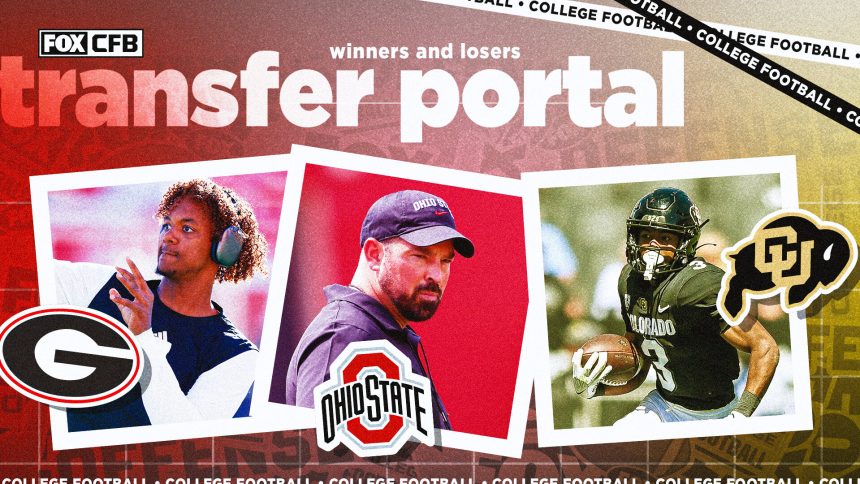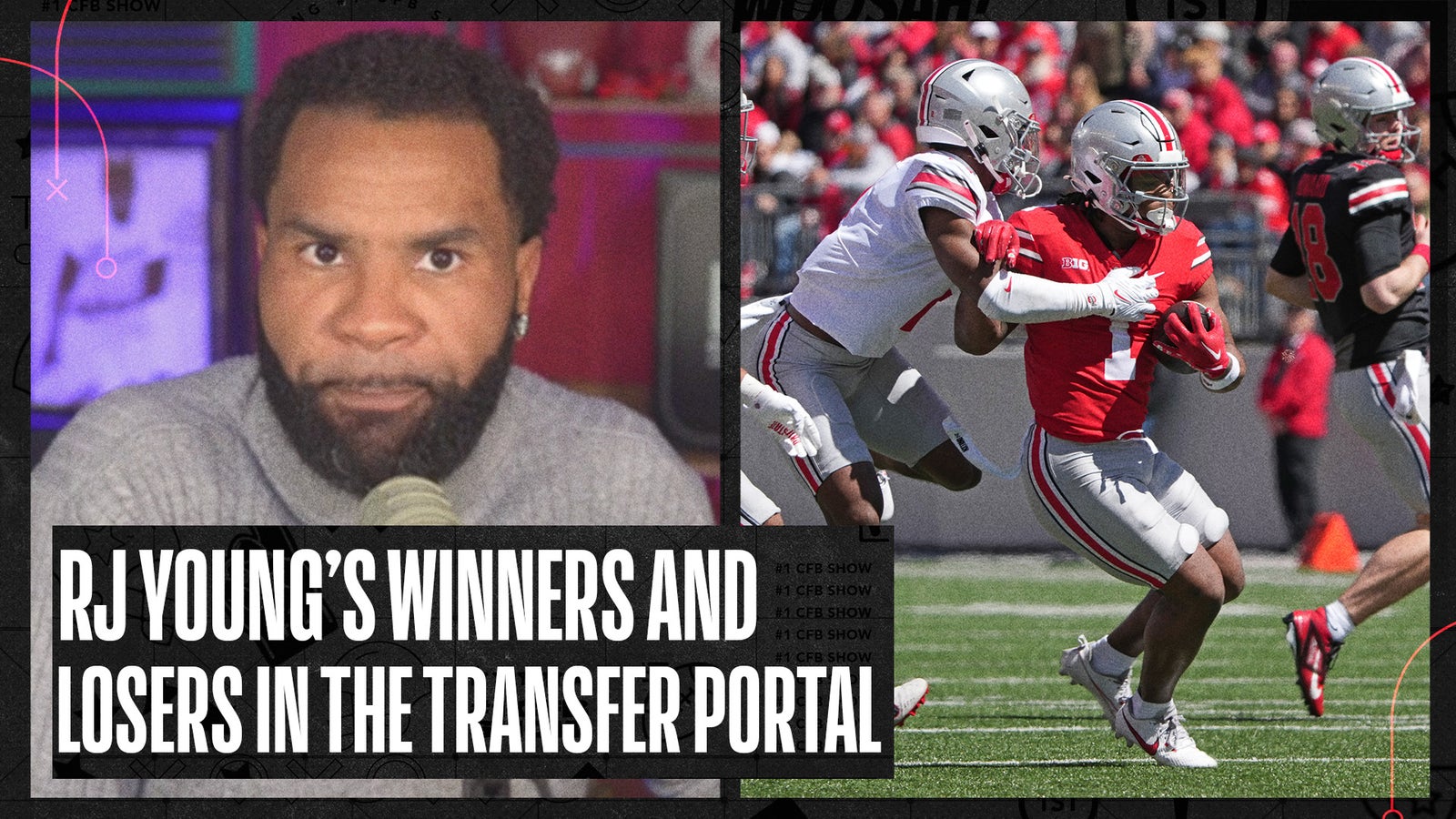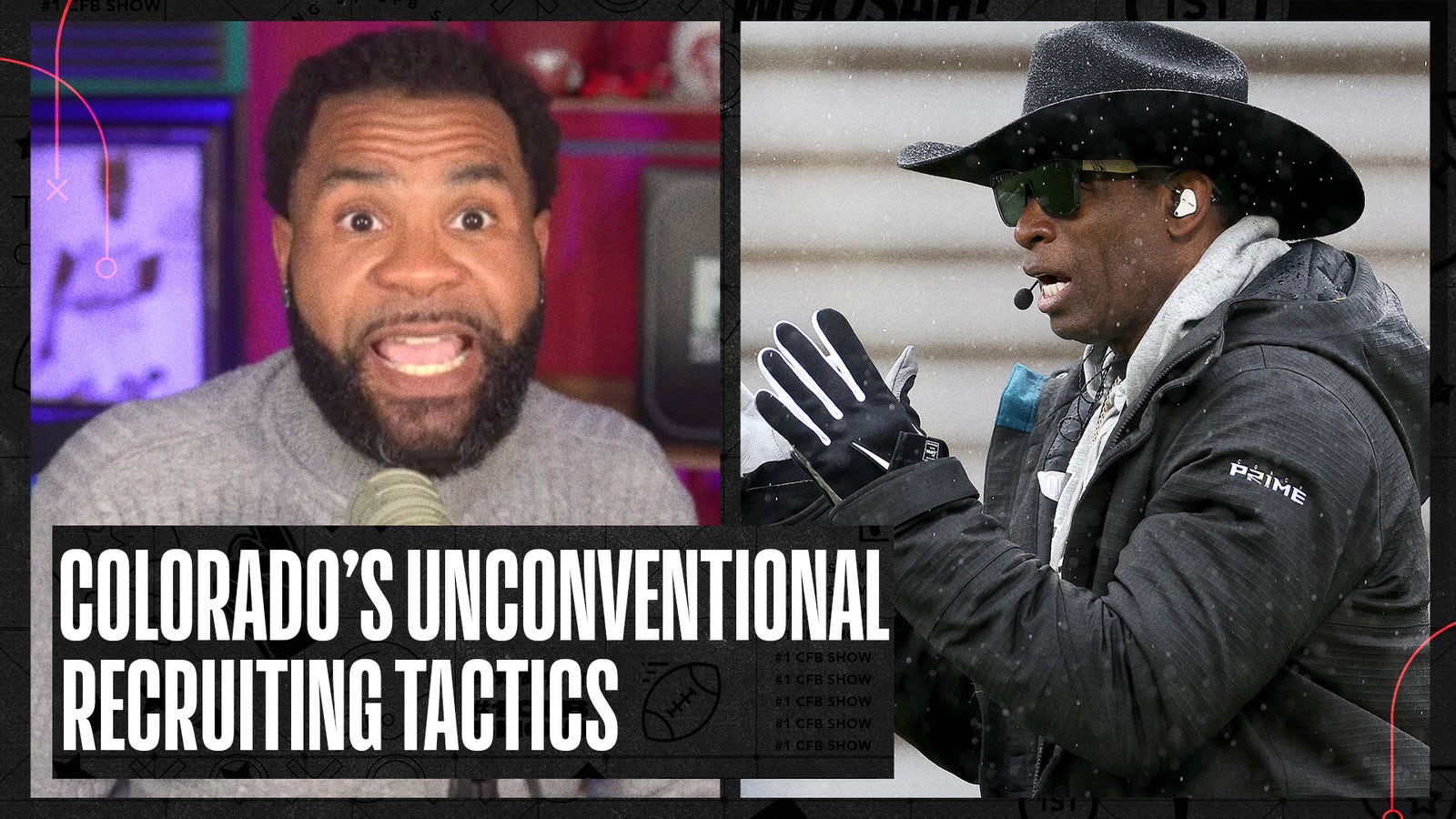“I’m not transferring.”
Those were the words of former Colorado cornerback Cormani McClain when speaking with “Well Off Media” during the Buffaloes’ Pro Day back in March.
Less than one month later, he entered the transfer portal.
In the process of entering, McClain made a video that seemed to take a shot at Colorado: “I feel like I just don’t want to play for clicks,” McClain said. “I actually want to be involved with a great leading program that’s going to develop players.”
ADVERTISEMENT
McClain is one example of what it means to be a top college football recruit in the era of the transfer portal, NIL money and social media. While some programs seem to navigate what has been called free agency in college football, others continue to flounder.
McClain represents one way of conducting business in this environment, while the Ohio State Buckeyes represent another.
With that said, here’s a look at my winners and losers from the spring football transfer portal window:
Portal Winners:
Ohio State: Nothing of substance was lost, only gained.
No program made a bigger splash — splashes, really — than the Ohio State Buckeyes during the winter transfer portal. Following a spring game that revealed the prodigious talent that chose to return for the 2024 season (TreVeyon Henderson, Emeka Egbuka), a standout true freshman (Jeremiah Smith) and a number of impact transfers (Will Howard, Quinshon Judkins, Caleb Downs), Ryan Day has successfully navigated through a raucous spring portal period with finesse.
During this time of year – the last time for the portal to open for undergraduate transfers to move freely – many programs are looking to fill needs, which includes adding depth due to unexpected portal entries. With that said, continuity of both staff and roster are luxuries.
Day and the Buckeyes are heading into the summer both healthy and more talented at quarterback, running back, safety and offensive line than they were in 2023, which bodes well for their future.
Kansas State: Added Dylan Edwards to the backfield with Avery Johnson and DJ Giddens.
With the addition of former Colorado running back Dylan Edwards, Chris Klieman’s Kansas State team will once again have the necessary speed and versatility in the backfield to take advantage of their old-school, run-oriented attack.
Johnson, who succeeded Howard as the starter in Manhattan, is one of the most capable dual-threat quarterbacks in the Big 12. The 2023 Pop Tarts Bowl MVP — put that on a business card, Avery — became the first K-State true freshman quarterback to start and win a bowl game. He received Big 12 Offensive Freshman Honorable Mention accolades, despite making just two starts and playing in eight games last season. Meanwhile, DJ Giddens enjoyed a breakout year, rushing for 1,223 yards while averaging 5.5 yards per rush as a sophomore.
Edwards has the kind of talent that could lead to him becoming as productive as Giddens was last year, though he didn’t show much in 2023 at Colorado. Aside from an outstanding first game — five catches for 135 yards with three TD against No. 17 Texas Christian — Edwards struggled with securing the ball behind an awful offensive line. In 2023, he never rushed for more than 57 yards in a single game and managed to fumble the ball three times in CU’s final 11 games.
Edwards will get the chance to reset at a program that expects to compete for the Big 12 title and prepare for a meeting against his former team, Colorado, on Oct. 12.
Georgia: Filled a need at QB.
The addition of Jaden Rashada fills a void left by former five-star quarterback Brock Vandagriff’s departure to Kentucky.
In Rashada, Georgia coach Kirby Smart and OC Mike Bobo gained a player who started games at Arizona State and flashed the ability that led to his loud recruitment journey which started with a commitment to Florida for $13 million — the checks did not clear — and later led to playing in Phoenix, and now in Athens.
Rashada, a former four-star recruit, threw for 485 yards, four touchdowns and three interceptions in three games as a Sun Devil.
At worst, Rashada will sit behind Carson Beck and Gunner Stockton in 2024 and have an opportunity to either compete for the starting job in 2025 or elect to enter the portal again in December.
Oklahoma: Filled a need at WR
The Sooners have found their answer for what Andrel Anthony added in the way of a deep threat in 2023 with Deion Burks — or so it seems. In OU’s spring game, Burks popped with five catches for 174 yards, including a 50-yard catch-and-run pass from sophomore Jackson Arnold.
While the Sooners return wide receiver Nic Anderson, Gavin Freeman’s decision to enter the transfer portal makes Burks’ addition more valuable. Freeman was expected to become one of the program’s most dependable wide outs following Drake Stoops’ exit to the NFL.
Now, coordinators Joe Jon Finley and Seth Littrel will have to find another set of capable hands and more ways to get the ball to Burks in their first seasons as co-offensive coordinators.
Portal Losers:
Colorado: We’ve seen this movie before.
For the second year in a row, Deion “Coach Prime” Sanders’ Colorado program has dominated coverage in the spring transfer portal window. Last year, the sheer number of players coming and going was a large talking point. This year’s high-profile exits are eye-brow-raising.
Along with Edwards, who played for Coach Prime as a youth, former AAC Freshman of the Year Alton McCaskill, former Jackson State standout Sy’veon Wilkerson, McClain, and starter Omarion Cooper all entered the portal.
That’s three starters, three running backs and two cornerbacks among 36 players who are likely to enroll elsewhere this fall. The Buffaloes picked up a couple Ohio State castoffs in running back Dallan Hayden and tight end Sam Hart, and got stronger on the offensive line with the addition of former Texas Longhorn Payton Kirkland.
But Colorado fans are still waiting to see Prime’s roster management strategy translate to wins. The program finished 4-8 last year. The offensive line gave up more than 50 sacks and got the starting QB’s back broken.
This year, many hoped that what Ohio State had succeeded in doing — forming a formidable roster through the portal — was possible for Colorado. That hasn’t been the case.
RJ Young is a national college football writer and analyst for FOX Sports and the host of the podcast “The Number One College Football Show.” Follow him on Twitter at @RJ_Young and subscribe to “The Number One College Football Show” on YouTube.
recommended

Get more from College Football Follow your favorites to get information about games, news and more












